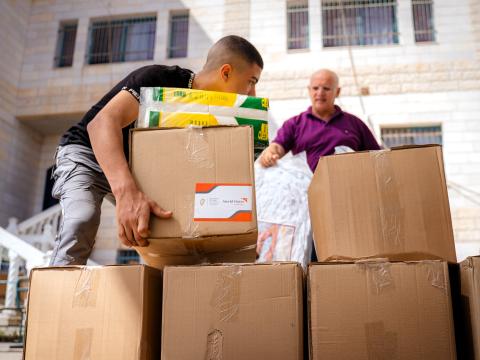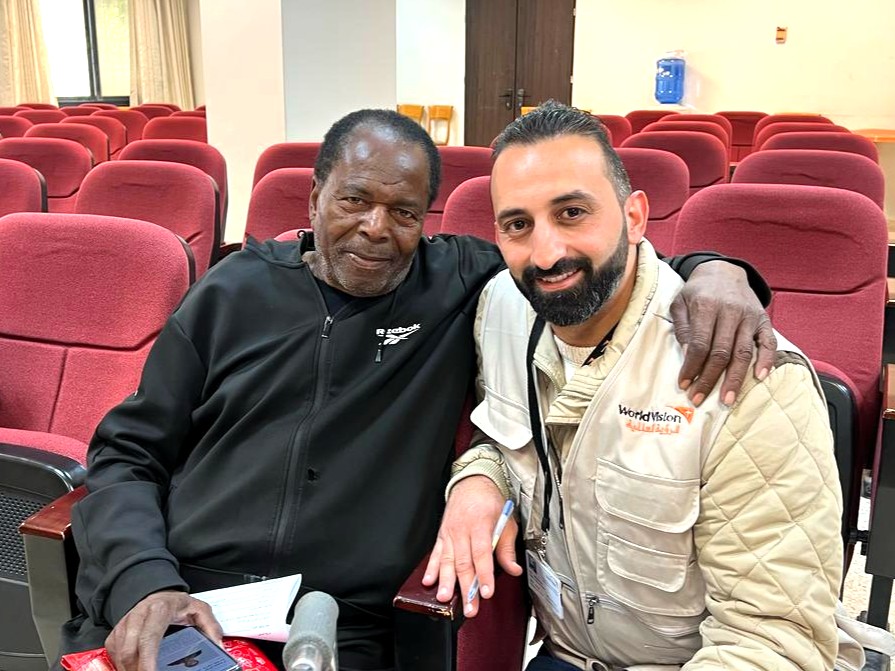"I left with nothing”: Supporting displaced families in the north of the West Bank

Since January 2025, relentless military operations have devastated civilian infrastructure across several northern cities in the West Bank. Thousands of families have been ordered to leave, hundreds of homes have been destroyed, and dozens of schools forced to close. The destruction has displaced 44,000 people.
Among them is Fayez, an 81-year-old man who, five months ago, was forced to flee his home in the Tulkarem refugee camp after it was marked for demolition. “It was the third time in my life I had to flee because of violence,” Fayez shared.
“The situation was chaotic and frightening,” he recalls. “I left with nothing—no clothes, no blankets—nothing.”
Initially, he sought refuge in the village of Al Nassariya near Nablus but later returned to a small village outside Tulkarem. He now lives in his son’s overcrowded home, where more than 20 family members—most of them also displaced—share the same roof. Privacy is non-existent, and resources are stretched dangerously thin.

Hunger is a daily reality. The family often shares just one meal a day. “It is hard to see my children and grandchildren not getting enough food,” Fayez says. “So often, I pretend I’m not hungry and leave food on my plate so they can have more.”
Elderly and in poor health, Fayez relies on a walker and is unable to work. Since being displaced, he has become entirely dependent on humanitarian aid to meet his basic needs.
The first help he received came from World Vision, which provided hygiene supplies, blankets, clothing, and food vouchers. This assistance was part of the *Rapid Response to Displaced and Conflict-Affected People* project, implemented in partnership with World Vision Ireland and funded by Irish Aid. Fayez’s is one of 835 families who have received essential supplies and food through the programme, offering a critical lifeline to those who have lost everything.
With no home or income, Fayez doesn’t know what tomorrow will bring. “I only have hope,” he says quietly, glancing at his grandchild sitting beside him. Despite the upheaval, his grandchild continues to attend school—a small but powerful reason for Fayez to believe in a better future.